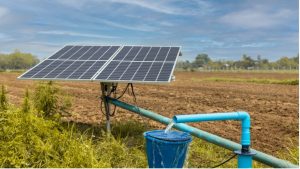Hydroponics refers to an agronomic technique in which crops are grown without soil, receiving the necessary nutrition through irrigation. Hydroponics are typically used in highly technological systems, where the aim is to maximise yields, while minimising water and energy consumption. Thus, by using its own substrate, crops are able to grow in areas with good weather but poor or contaminated soils. Moreover, the technique allows for better environmental control by reducing the creation of pollutants and leachates.
👨🌾👩🌾🚜💧🌱🌾

One key aspect of this system lies in the selection of the substrate, which can be (i) organic, like coconut fibre, (II) inorganic, like perlite or rockwool, or (iii) directly floating in the nutrient solution on bare roots. The substrates are homogeneous and maintain their endaphological properties, minimising spatial variability. In other words, they can be characterized and monitored easily, providing much more exhaustive controls.
Nowadays, there is a wide variety of hydroponic systems, which are becoming increasingly affordable and more compact, with lighter and more versatile structures. There is no doubt that potential exists, however, it is important to bear in mind that production costs are high and specialized personnel are required. In other words, before investing, we must consider the market value of the product and whether it would be profitable to produce with this technology. At GLOBALTEC, we are committed to hydroponic systems, advising our clients throughout the life of the project.




